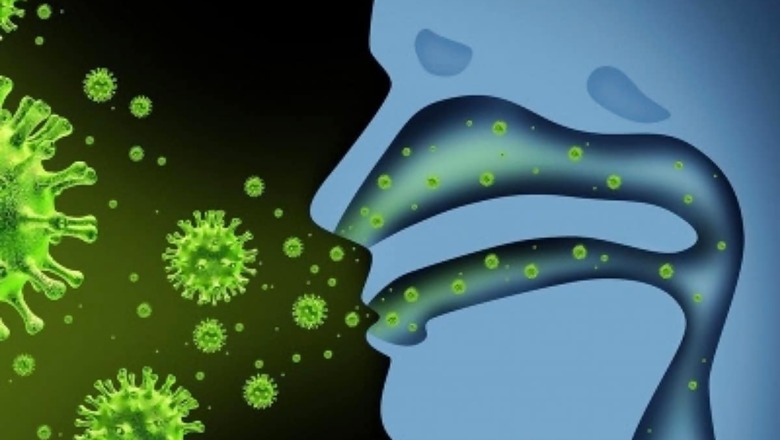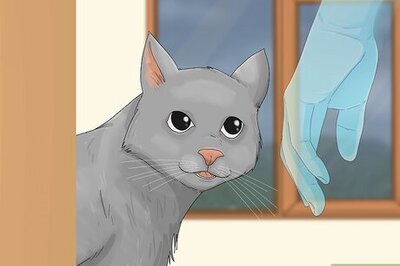
views
“Can you speak for a few minutes?”
I received this text message last week from a dear colleague whose family members tested Covid positive. He had consulted a couple of doctors and received advice from a few other colleagues who had already tested positive. The issue he faced was the divergence in opinions. One view was to start taking the antiviral Fabiflu right away so that there was no delay or complication later. The other view was to just treat as per symptoms, take paracetamols to suppress fever, unless the symptoms were severe. The jury was split. And he had to decide soon.
I am no doctor. I did test positive for Covid eight months ago and know many others who did and have followed what they went through before they recovered. But from the collective experience I have gathered, I did not feel confident to offer my view, given how bad the present circumstances are. I was apprehensive in case my advice does not work out. I suggested he take the opinion of a couple of other doctors who are experienced in Covid care. He did and the treatment began soon after.
There are many like my colleague who are facing the same dilemma every day: what does one do when one receives very different opinions?
I remember from my experience, every doctor I had consulted had asked for a CT scan on hearing about my persistent shortness of breath. I was Covid positive at home and there were no diagnostic centres willing to allow corona patients at that time. One doctor who I consulted online suggested I get a chest X-ray, which is possible at home. Another doctor said it is futile and I should not waste time and money on it. I took the call to do it and the film did give a sense of the impact on the lungs, though it was nowhere as definitive as a CT scan.
I did get a CT scan the day after testing negative which showed the damage caused by the novel coronavirus. Long after testing negative, I continued to find it difficult to speak more than a few sentences without pausing for breath. My gastroenterologist, Dr Vivan Talwar, who I went to for a stomach ailment, found me struggling to speak and referred another pulmonologist for a second opinion on the state of my lungs. It was Dr Raj Kumar, who finally treated me. After more than four weeks of treatment, he asked me to repeat the chest X-ray and suggested “a pulmonary function test along with D Dimer, CRP, CBC, LFT & RFT”.
Only after going through the results of all these tests, Dr Raj Kumar assured me that I had considerably improved. When I asked if he was sure that my lungs were fully clear of the ground glass deposits induced by Covid, he said he would need to see the CT scan before he could say with absolute certainty. I asked him if he recommended a repeat CT. He was of the opinion that it could be avoided given the adverse effects of radiation.
Coming back to the issue of different medical opinions, what does one do with two divergent views of treatment? Either look for more opinions or take a considered call based on all available advice. The decision is not easy and needs to be taken without losing much time.
In my case, getting the chest X-ray done at home while I was Covid positive proved to be beneficial as a CT scan was not possible at the time. Later, the subsequent X-ray after three months helped compare the improvement over time since I did not repeat a CT scan.
I often find myself in a situation where my colleagues seek my input after getting infected. There is no question of hazarding a guess or offering advice on the line of treatment unless one is a qualified medical professional who has experience in handling Covid patients. However, what I have advised to many who have turned to me for my take are some other aspects which are also important. Below are 10 suggestions that have worked for some of my colleagues or their families who tested Covid positive.
- Avoid stepping out for testing if you do not have symptoms, only because one of your near ones has tested positive. These testing centres are so packed, there is a good chance of getting infected there, if you do not have the virus already. If home collection of sample for testing is possible, get it done.
- When you first feel unwell and start taking paracetamol, take it every six hours and not just SOS when the fever rises.
- Isolate from the rest of the family the moment you feel any symptom associated with Covid. Do not wait to get tested and see your result. Do not leave your room. No one else should enter your room. When you open your room door to take in food, water or medicines placed just outside the door, do so wearing two masks. No one else in your family should be in proximity when you do so.
- Consult a pulmonologist if you have prolonged breathing issues, severe cough or congestion in the chest. A pulmonologist is much better placed to advise than any general physician.
- Do not rush to get a CT scan done unless there is persistent shortness of breath, acute cough or congestion, and advised by a pulmonologist or a physician. A CT scan involves exposure to radiation, which is best avoided, unless absolutely required.
- Do not worry yourself sick if your oximeter reading shows 94, 93 or 92. Constantly stressing about it will not help to improve the situation. Instead, it will adversely impact your breathing. I suggest watching some light entertainment, be it a comedy film, series, or indulge in anything else that relaxes you, which is possible within the boundaries of your room and which is not prohibited by your doctor.
- Follow the 6-minute test where you record your oximeter level and check if the reading drops 5 per cent after brisk walking for 6 minutes. If it does, you urgently need oxygen support.
- Do not stress about going to the hospital unless your oxygen saturation level falls below 92. Not once or twice, but more often than not. In any case, there is hardly any space left in medical centres in most cities. Hospitals are so stretched for both human resources and other medical resources that they have begun to ask patients to carry their own oxygen and medicines. A home situation is significantly more comfortable unless you are severely critical and need ICU care.
- Practice breathing exercises, pranayama and lying down in a prone position, as much as you can, especially if you experience shortness of breath or have low oxygen saturation.
- Do not stress. Do not read or watch anything on TV or social media which may stress you out more. Only follow those videos or literature which help you heal. The more you stress, the more it will affect your breathing. Those who suffer from high levels of anxiety should be extra careful.
We are in a situation where we need all we can get to beat the virus. This means diagnosis at the right time, appropriate medical advice, emotional support from family, friends, colleagues, and, last but not the least, good luck.
To all those who are now Covid positive, I hope you benefit from reading this. If you do, please share with as many people as you can. Nothing is more important, satisfying than helping someone heal from Covid-19. Let’s do whatever it takes to beat the virus.
Read all the Latest News, Breaking News and Coronavirus News here. Follow us on Facebook, Twitter and Telegram.



















Comments
0 comment